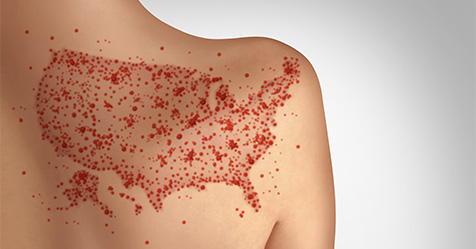Antiviral Coating Can Protect Hospital Surfaces From the Coronavirus
Applying a reformulated quaternary ammonium coating to stainless steel led to an almost complete elimination of coronavirus contamination on the surface, according to a study in the American Journal of Infection Control.
Investigators with the University of Arizona in Tucson, Arizona, used acetone-washed, pre-autoclaved stainless-steel coupons coated with reformulated quaternary ammonium polymer to simulate hospital bed rails and other patient room surfaces. They also set up a control group of stainless-steel coupons that were not coated.
Both the control and experimental coupons were exposed to human coronavirus 229E and SARS-CoV-2, the virus that causes COVID-19. Researchers then harvested viruses from the experimental and control surfaces using both a carrier wash method and a swab method. They found a 99.9% reduction of viruses on the coated coupons.
“With the recent detection of infectious SARS-CoV-2 from the bedside table, remote control, bed rails, and flooring in the hospital room of an infected patient, the importance of effective hygiene protocols for environmental surfaces remains imperative,” the study states.
Researchers say surface-active coatings that have antiviral capabilities are not meant to be substitutes for regular cleaning and disinfection practices. However, they can serve as an additional barrier for reducing human exposure to infectious viruses.


